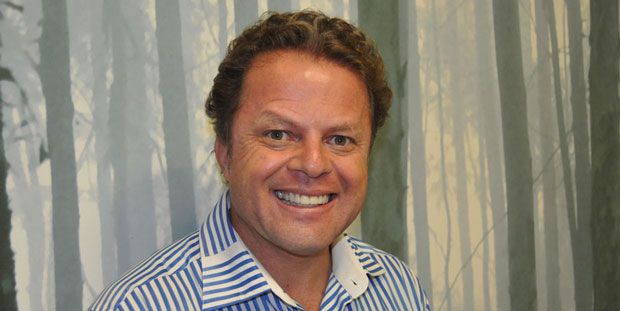AppChat, the up-start mobile virtual network operator and voice and data provider headed up by former ECN Telecommunications CEO John Holdsworth, will launch a “controlled pilot” on 15 November. The pilot, which will involve about 10 000 customers, will end on 31 January, with full commercial launch to follow on 15 February.
The company will target the high end of the market, enticing customers of the big network operators to switch to AppChat through lower fees and what Holdsworth believes will be a better value proposition. The company also intends to target the corporate market. Holdsworth says that, conservatively, he expects to have signed up at least 1m customers within five years.
“The market we are going after understands value and is very discerning,” he says.
Holdsworth, who is involved in a bitter high court battle with ECN over allegations he is in breach of his restraint of trade agreement (a judgment is imminent), says he will reveal more details about AppChat’s product offerings and plans on 1 September and he says what will be announced “will turn the mobile market on its head”.
AppChat is believed to have entered into a partnership with Cell C. However, Holdsworth won’t say which mobile network he’s partnered with before 1 September. What he will say is AppChat will offer a converged product and service. “It’s not going to be an easy product to replicate,” he says.
He declines to say who his financial backers are, or how much they are investing in AppChat. What he will say is that he has invested a “significant” amount personally in the start-up phase of the business.
Meanwhile, Holdsworth, who was a central figure in recent years in lobbying for reduced wholesale mobile call termination rates — the fees the mobile operators charge each other and other industry players to carry calls onto their networks — says he intends to lobby the Independent Communications Authority of SA (Icasa) and parliament on a range of other interventions he believes are necessary to bring down the cost of communications in SA.
He says he may bring a complaint to Icasa’s complaints and compliance committee (CCC) seeking to stop Telkom from charging separate rental fees for basic fixed-line subscriptions and fixed-line broadband. “It’s completely unacceptable,” he says. “There should be one rental fee. I understand the arguments around the access-line deficit, but I don’t believe the costing models have been developed by parties that are sufficiently independent.”
Telkom claims it loses money on the average line in service from the basic line rental fees it charges before other services, products and call fees are added. This access-line deficit has formed the cornerstone of the company’s arguments against full local-loop unbundling, the process whereby rival operators and Internet service providers would be given access to the company’s copper-cable infrastructure in homes and businesses.
“There should be one single fee for broadband and voice and it shouldn’t be higher than the current voice fee Telkom is charging,” Holdsworth says. “In the rest of the world, it’s around about the R120-R150/month mark. We’ll take this to the CCC early next year.”
He says he also plans to campaign for further reductions in the fees Telkom charges Internet service providers to access its last-mile network. These IPConnect fees were reduced by 30% earlier this year but Holdsworth says they should be reduced much further. “The prices are completely unacceptable.”
He says he also wants speedy implementation of “bit-stream access” — the first component of local-loop unbundling — and for Icasa to issue a ruling on call origination fees, which is needed to give practical effect to “carrier preselect”, where consumers can choose to route their call over the network of their choice.
Lastly, Holdsworth says, there needs to be a further sharp reduction in mobile termination rates beyond March 2013, when they will fall to 40c/minute. “We want cost-based interconnect and tariffs of 10c-15c/minute,” he says, adding that smaller operators should enjoy more aggressive “asymmetry”, where they pay less to the big players than the big players pay them.
Holdsworth says asymmetry benefits small players and helps develop a more competitive market. He says a ratio of 2:1 would be appropriate. — (c) 2012 NewsCentral Media





